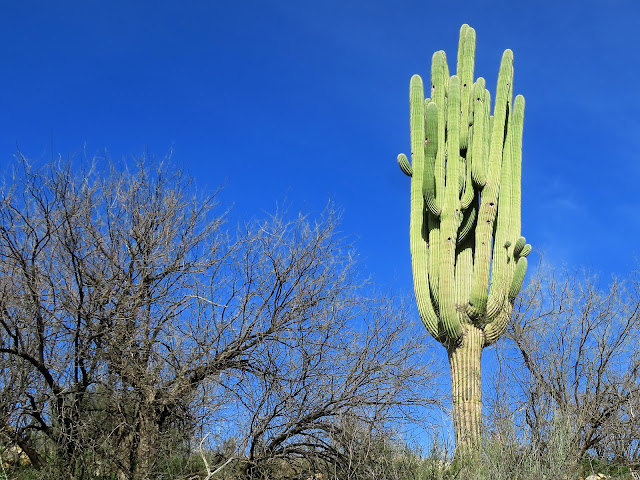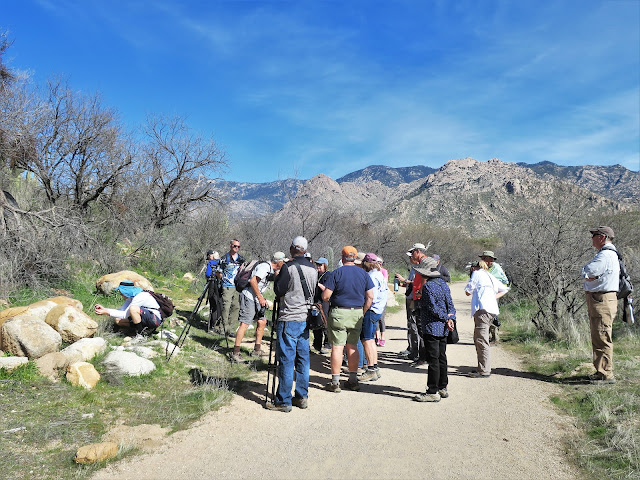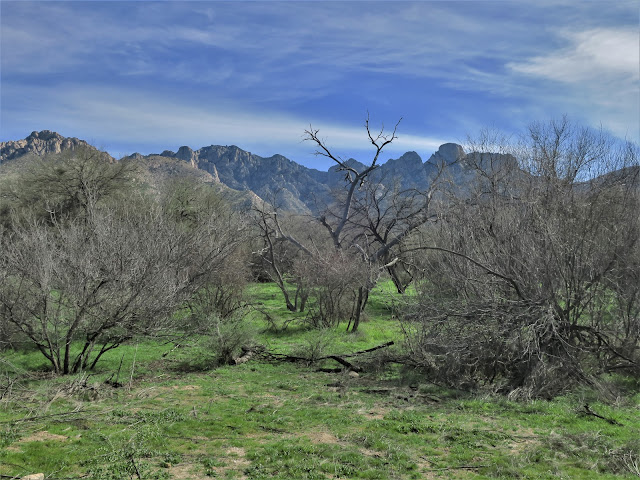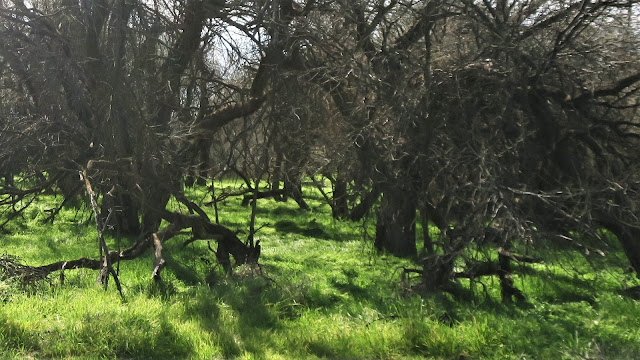February 2020
 |
| Catalina State Park, Tucson, Arizona. February 2020. |
Catalina State Park offered an outdoor photography seminar by Bruce Turnbull, a nature photographer who winters in Arizona.
 |
| Catalina State Park, Tucson, Arizona. February 2020. |
I took notes. They are meager. I'll lay them here for my future revisiting. Obviously, any inaccuracies in the notes are mine and not Mr. Turnbull's.
 |
| Catalina State Park, Tucson, Arizona. February 2020. |
Wildlife
- 5.6 aperture
- 1/500 speed or faster (for something slow moving)
 |
| Catalina State Park, Tucson, Arizona. February 2020. |
Landscapes
- SO as low as possible
- Speed 1/60 to 1/100, the bigger the #, the smaller the aperture
- Goal: same sharpness from foreground to background
- The larger the ISO, the grainier the photo
Don't go any slower than your lens size.
 |
| Catalina State Park, Tucson, Arizona. February 2020. |
With flowers or wildlife, you want your target to be in focus, but the background blurred - because you want your target to be the center of attention.
Here is a slideshow of my Catalina State Park photos. What a glorious day it was.
 |
| Catalina State Park, Tucson, Arizona. February 2020. |








